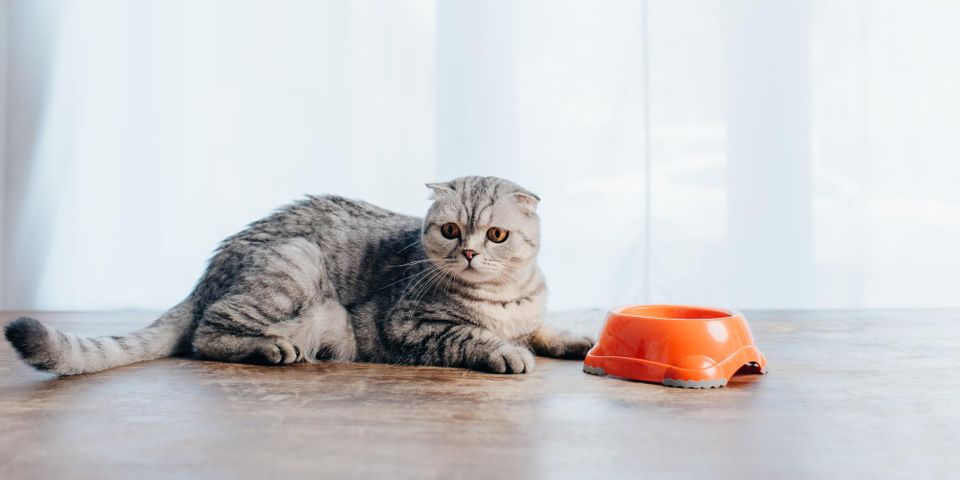
A well-balanced diet is necessary for keeping cats healthy, so it’s alarming when your furry friend stops eating as much as they usually do. Their disinterest in food may have a fairly mild cause, but it could be a sign that there’s something wrong. As you pay careful attention to your feline and prepare to seek the advice of a veterinarian, here’s a closer look at the most common reasons for this behavior.
Why Do Cats Stop Eating?
1. Problems With the Food
Cats are picky eaters, and if they don’t like what they’re given, they simply won’t eat. If the food is old and stale, dampened when it should be dry, or affected by pests, your cat may simply choose not to eat. This can also happen if you change the brand of food to something they’re not used to.
If you have an outdoor cat, they might be getting their food elsewhere. When these predators have free reign, they’re known to eat mice, birds, and other wildlife.
2. Stress
Changes to a cat’s routine can cause them to experience enough stress to severely affect the appetite. A new house, family members moving out, or an added pet in the family can trigger a negative psychological reaction.
These are often temporary disturbances to which they’ll acclimate easily enough. If the problem persists, however, a veterinarian may recommend a subscription for stress-relieving medication.
3. Recent Vaccinations
 Vaccinations are necessary to stave off preventable diseases, but they can have adverse side effects. It’s not uncommon for cats to eat less or stop eating for 24 to 48 hours after they get back from the animal hospital.
Vaccinations are necessary to stave off preventable diseases, but they can have adverse side effects. It’s not uncommon for cats to eat less or stop eating for 24 to 48 hours after they get back from the animal hospital.
If the loss of appetite extends beyond that time frame or if there are problems with vomiting or diarrhea, take the cat to a vet clinic. They might be having an allergic reaction to a vaccine.
4. Gastrointestinal Problems
If the loss of appetite is accompanied by noticeable weight loss or unpleasant gas, a veterinarian should inspect the cat’s digestive system. These symptoms are usually caused by an infection from parasites or a foreign body, such as a toy or hair clip, that’s been ingested. It can also point to more serious issues like inflammation in the bowel or pancreatitis.
5. Dental Issues
Common dental problems include inflamed gums, a cut in the mouth, or a broken tooth, any of which could be the cause of a cat’s decreased appetite. More serious issues, such as oral tumors or ulcers, may also be to blame. Schedule a dental cleaning and exam to diagnose the problem and find a treatment option.
If your cat is refusing to eat, visit the professional veterinarians at TLC Pet Care Centers in Cincinnati, OH. For more than 40 years, they’ve offered pet care solutions 365 days a year at their two convenient locations. They have the experience and technology needed to diagnose the problem and offer the best treatment option to restore your cat’s health. Schedule an appointment at their East location by calling (513) 683-2300, call (513) 825-4011 for the West location, or learn more about their services online.
About the Business
(28 reviews)
Have a question? Ask the experts!
Send your question

